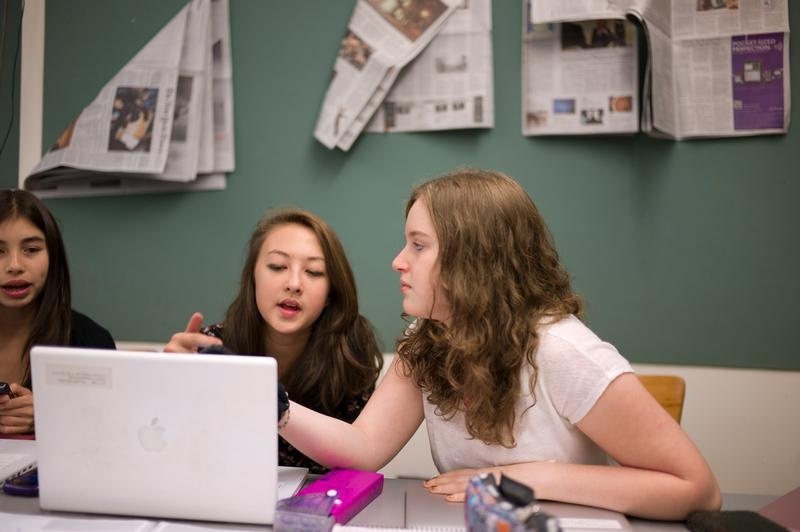How do youth think about their own privacy and that of others as they post photos and comments on social media? To what extent do they think about the ethical dimensions of the digital content (music, text, video) that they share? How do they respond to routine displays of disrespect and incivility that characterize dialogue in many online spaces?
How do they respond to routine displays of disrespect and incivility that characterize dialogue in many online spaces?
As part of Project Zero's Good Play Project, my colleagues and I explored these kinds of questions in interviews with tweens, teens, young adults, and with parents and teachers.
Our analysis reveals inspiring, morally- and ethically-sensitive approaches to online life among youth. However, these bright spots exist alongside—and are often dwarfed by—troubling blind spots, mindful disconnects, and deeply individualistic approaches to using the internet. In short, while youth are perpetually wired and connected, their thinking about online situations can often be glaringly disconnected from their ethical dimensions. Youth (and adults for that matter) are often not aware of the potentially far-reaching negative implications of the things they post and circulate online.
Our research points to a glaring mentorship gap regarding ethical issues in digital life. We heard that conversations about the internet are happening in schools, yet the messages that youth get from these discussions are often narrowly focused on personal risk.

A parental mentorship gap in internet-related support was evident in our study as well. The data from our interviews with teens and young adults suggested that their parents played only minor roles in influencing their online thinking. And when parents did influence youth, either through explicit discussions or implicit modeling, their messages rarely concerned ethical issues. Tweens reported more explicit guidance on the part of their parents. However, the advice their parents gave was almost always about safety issues, "stranger danger," and the negative personal consequences of posting inappropriate content.
Such parent-youth conversations are missed opportunities, in part because parents should be well situated to guide their children’s attention to moral and ethical concerns. Young people often cite their parents as key figures in their lives to whom they feel responsible, especially when they make important life decisions. To the extent that youth are willing to share aspects of their online lives, parental figures should be poised to influence their children’s online behavior and to identify and help correct blind spots and disconnects.
Parents can engage their children in thoughtful discussions of actual online situations and encourage them to wrestle with the related moral and ethical questions:
- Just as parents may do regarding physical schoolyard conflicts, they can nudge their children to exercise empathy, show respect for others, and embody other aspects of moral thinking.
- They can also remind their children that they are part of larger communities and that their choices can have effects, even if they can't be seen directly.
- Parents are in a unique position to create and enforce digital time-outs for reflection on these issues.
- Finally, parents—particularly those who are active online participants themselves—can point out inspiring examples of digital citizenship. In so doing, they may cultivate ethical agency.
There is one more important point to make about the role of parents, schools, and digital technology in youth’s digital lives. With the help of online search engines, some schools have ventured down the path of surveilling students' online conduct in order to stay apprised of cyberbullying and other problematic online behaviors. Many parents also believe that monitoring their tweens' and teens' text messages, social media, email accounts, and activity on other apps is the best mechanism for keeping them safe.
As a parent myself, I can appreciate the caring motivations behind such acts. Discovering harmful online exchanges can certainly be an impetus for the kinds of reflective conversations for which I advocate. Yet I worry about the implications of such surveillance for youth. If adults are always watching, intervening, and thus sensitizing youth to the dilemmas found online, young people won't have adequate room to develop conscientious habits of mind of their own. As media scholar Henry Jenkins has quipped, "Adults shouldn’t be looking over kids' shoulders, but they should have their backs."
The recommendations I've suggested here are made in that spirit.
The following is an edited excerpt from Carrie James' book Disconnected: Youth, New Media, and the Ethics Gap. You can find the book at your local library, bookstore, or through AmazonSmile. When you shop on AmazonSmile, type Facing History and Ourselves National Foundation, Inc. in the charity search box and select us as your charity. That way, when you shop, a portion of your eligible purchases will go directly to support our work around the world. Find out more.
Read more about civic engagement in a digital age on our sister blog Learn + Teach + Share.
Common Sense Media has additional resources and teaching strategies for parents and caregivers on digital citizenship:
- The Family Toolbox has resources that support and empower families to raise kids who think critically, participate responsibly, and behave ethically in their online lives.
- This series of conversation cases provides tools for parents and caregivers who are looking to create discussion groups around issues of digital citizenship.

